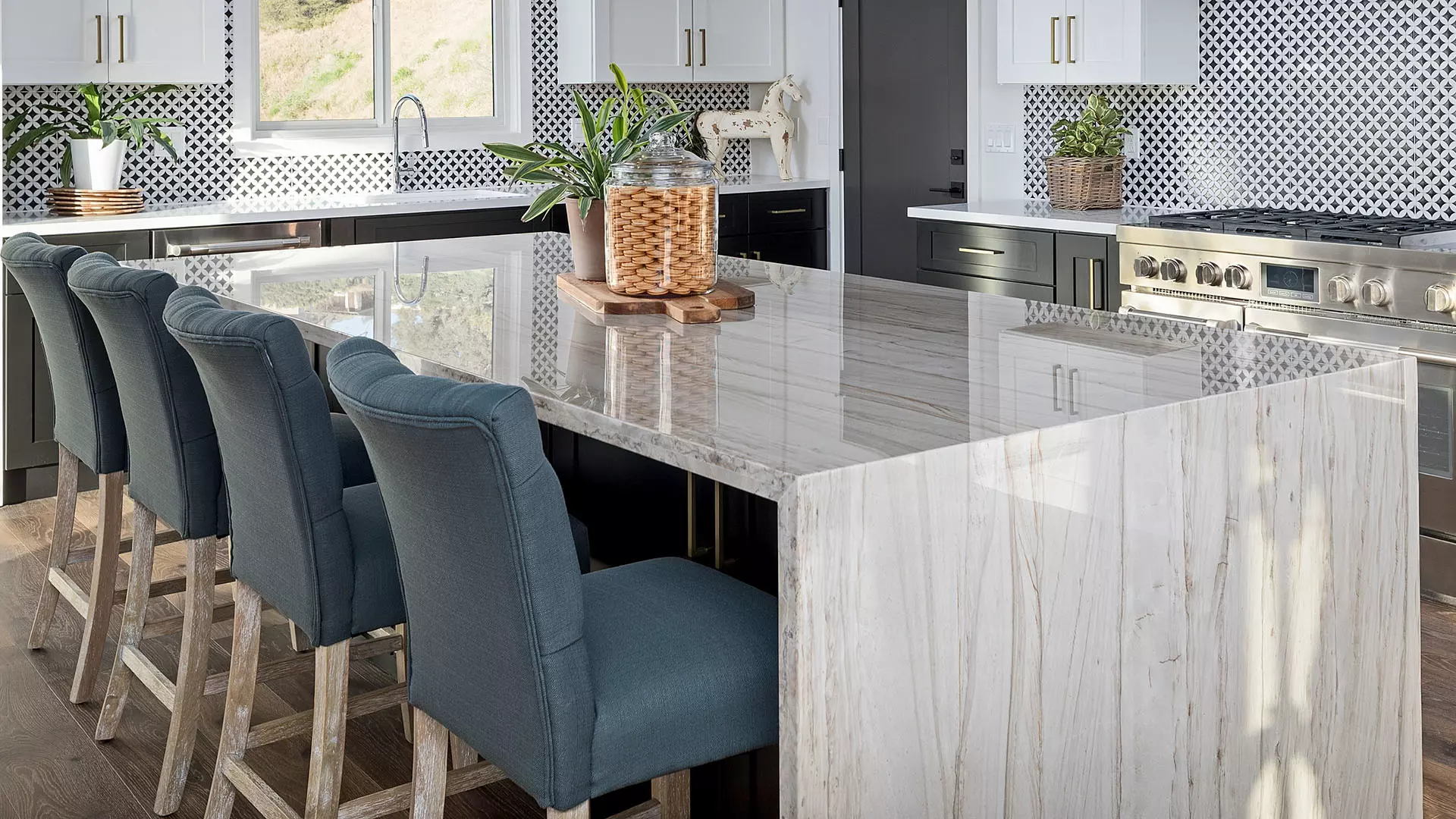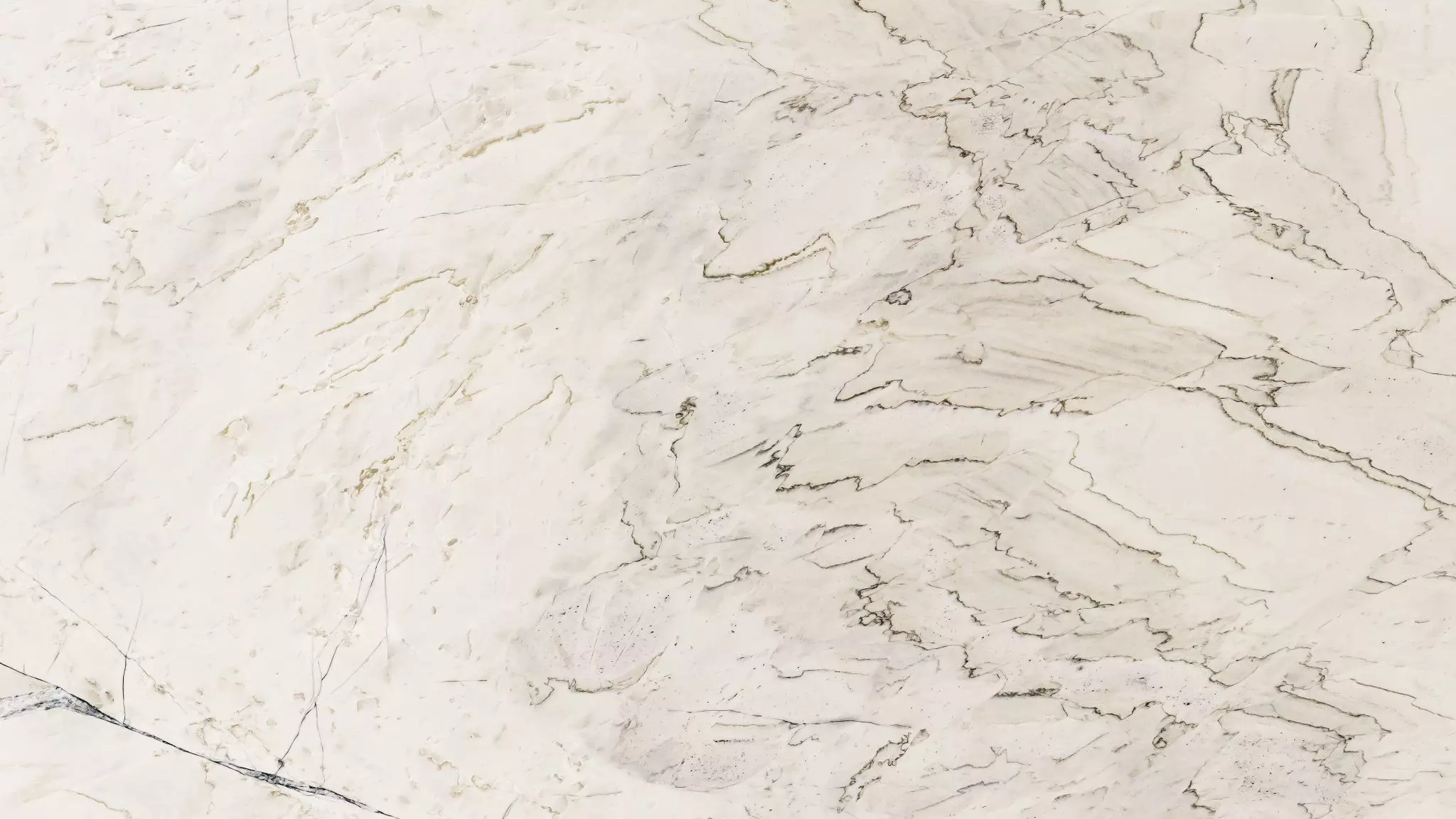Quartz and quartzite are two popular materials for countertops. They can be easily confused with one another because both contains “quartz” in their names, but these two materials are very different.
How are Quartz and Quartzite formed?
Most quartz slabs are made up of more than 94-percent crushed natural quartz and the remaining 6-percent with high-quality polymer resin binder and pigment, which creates the look and feel of a natural stone.
Quartzite is “formed when a quartz-rich sandstone is altered by the heat, pressure, and chemical activity of metamorphism.” (Geology.com) It is 100-percent natural.
Appearance
As pigment and patterns can be added during the manufacturing process of quartz slabs, you will find them in a variety of designs and colors.
Quartzite slabs usually come in white and gray. Iron oxides that are present could alter the shades of quartzite slabs, making them appear pink, red, or purple. Other mineral impurities could also bring out shades like yellow, blue, or green in quartzite slabs.
Durability
Quartz is durable and non-porous, which means that stains and bacteria won’t penetrate the surface. When using quartz as a countertop material, it does not require any sealing due to its non-porosity. Even though Quartz countertops are durable, they cannot withstand more than 300 degrees Fahrenheit of heat on the surface and will need potholders or trivets to prevent any thermal expansion and cracking.
Quartzite is considered one of the most durable natural stones when compared to marble and granite countertops. On a Mohs hardness scale, Quartzites are rated 7-8, whereas Marble is rated 3-4 and Granite is rated around 6. Quartzite withstands heat very well but might chip if not careful. Unlike Quartz, Quartzite is less porous and requires sealing to prevent stains and bacteria from penetrating the surface.
Maintenance
As mentioned above, Quartz countertops do not require sealing, and are easy to maintain. Daily cleaning consists of using a damp cloth and soapy water to clean up spills and stains. For stains that were not immediately wiped from Quartz countertops, you could use Bar Keepers Friend Soft Cleanser by following the instructions on the bottle. Make sure to always test a small hidden area before applying.
For everyday care of your Quartzite countertops, we recommend using warm water and a cloth, and wiping with a dry, soft cloth. Vinegar or bathroom cleaners should not be used. Spills should be cleaned up immediately as staining and etching are possible if acidic substances are left on Quartzite countertops for too long. Do not use abrasive cleaners on natural stone as it will dull the polish. Sealing is recommended for Quartzite countertops once a year, and many home improvement stores carry quality sealants that are acceptable for use on Quartzite.
Now that you know the similarities and differences between Quartz and Quartzite, you can make a better decision on the type of stone that will work best for you and your family’s needs. Call us at (346) 200-5311, or visit us at our showroom, and let our experienced sales team help you find the perfect stone for your next project!


